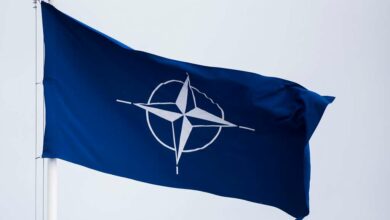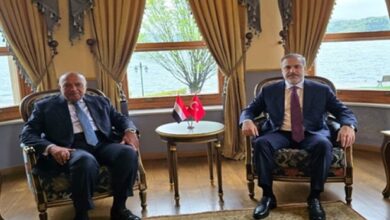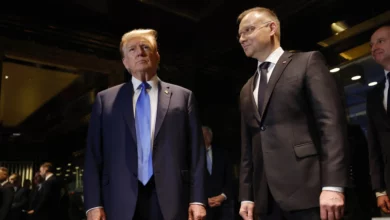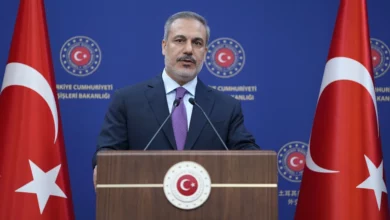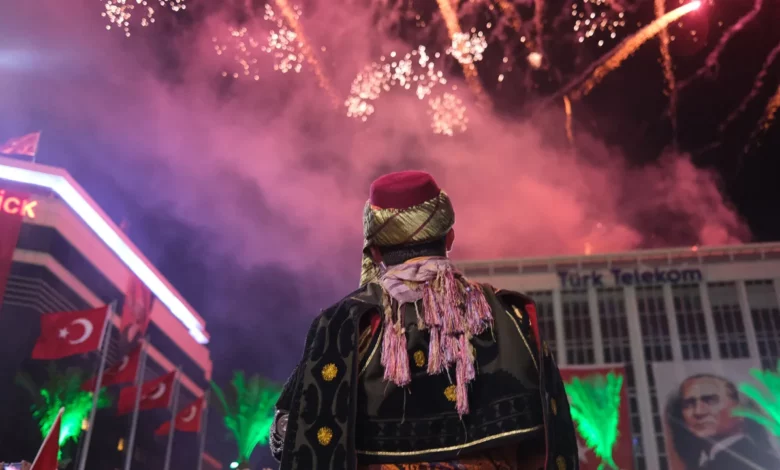
Turks on Sunday marked 100 years since the birth of the modern republic, with vibrant fireworks and a drone show over the Bosphorus strait lighting up the Istanbul skyline. During the day, naval ships sailed the famous waterway in a show of military might but also a signal of how far the republic has come since it emerged from the ashes of the Ottoman empire.
Turkish President Recep Tayyip Erdogan watched the show from the Vahdettin Pavillion, the residence of the last Ottoman sultan. For Erdogan, 2023 has represented both a goal and a promise – that under his leadership the country would see unparalleled progress.
The celebrations were also a recognition of the last 100 years as Erdogan ushered in another century forged more in his own image than that of Mustafa Kemal Ataturk, the larger-than-life founding father of the republic.
Today’s Turkey, however, is starkly different from the secular, Westernized state envisioned by Ataturk 100 years ago.
For Erdogan’s opponents, the centennial is a tribute to the enduring nature of the original republic. Despite what they see as the president’s relentless attacks on Ataturk’s legacy, for them, the republican experiment is still alive.
The republic and what it stands for 100 years after its declaration is perhaps one of the defining questions in modern Turkey’s deeply polarized society. In the lead-up to the celebrations, Erdogan’s critics accused him of trying to erase Ataturk’s memory. Meanwhile, Erdogan has presented himself as the flagbearer of Ataturk’s vision.
Forged from the ruins of the Ottoman Empire, the republic was created after Ataturk defended the region against looming threats of invasion from Europe and Russia. With Istanbul under occupation after the Ottoman sultan capitulated to the Allied powers in World War I, Ataturk set out for the Turkish heartland of Anatolia to carve out a new homeland. He established a capital in Ankara.
The Turkish republic as imagined by Ataturk was firmly rooted in the West and a quick succession of reforms sought to modernize a population decimated by war. The fez, a traditional Ottoman hat for men, was outlawed, and the Islamic veil discouraged, seen as a backward relic of the past. The written language was switched to the Latin alphabet from the Arabic script. Women were given the right to vote, years before most European nations. The Hagia Sofia, an Istanbul monument that was once a symbol of Byzantine Christian rule and that was turned by the Ottomans into a mosque, was converted to a museum as a symbol of co-existence.
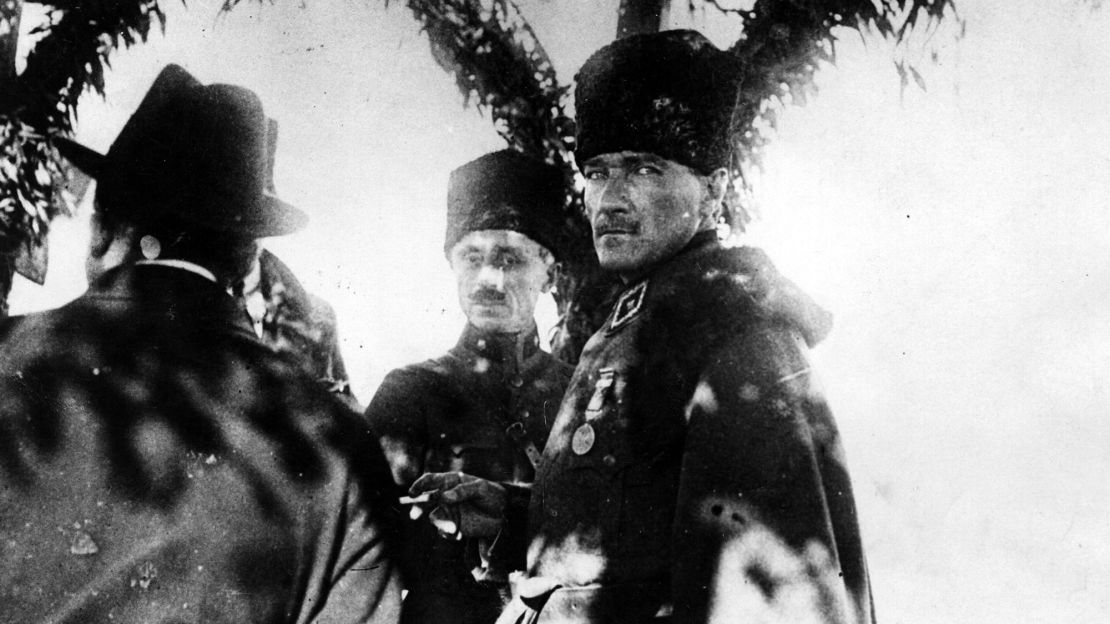
A hundred years later, the country under Erdogan has taken a different path, embracing its conservative roots and finding itself new relevance in the world of nations.
The Islamic headscarf has made a very public comeback in the state that was once so secular that it banned the veil in public sector institutions, as well as universities, parliament and the military. The president’s wife and daughters now publicly wear a headscarf and all such restrictions have now been lifted. Three years ago, the Hagia Sofia was turned back into a Muslim house of worship. A ruling by Erdogan to turn it into a mosque sits at the monument’s entrance alongside Ataturk’s own decree to turn it into a museum.
Last spring, Erdogan’s surprising victory in the presidential elections extended his rule into a third decade. It cemented his status as the country’s longest-serving leader and proved to critics that despite deep divisions, his vision for Turkey resonates with millions.
That vision however has also alienated a significant proportion of the country. And in the midst of a pinching economic crisis and brain drain of its secular class, many are asking just who the Turkish republic belongs to, and how it has come so far from its founder’s vision.
The role of religion
For a country whose population is overwhelmingly Muslim, Turkey’s most defining tension has perhaps always been the role of religion in the state and in the public space.
After the military forced out the government in 1997, Islamists and pious Muslims were alienated and persecuted, and a ban on wearing the headscarf in universities and public offices was introduced. Overt displays of religiosity by politicians weren’t tolerated, and Erdogan himself once landed in jail for reciting a religious poem as mayor of Istanbul in 1999.
Erdogan’s current appeal can be seen in how much of Turkey’s pious see him as giving a voice to the previously voiceless. Across the country, his face is the background image on many young men’s phones.
But religion isn’t the whole story; part of his following also comes from his humble origins.
From the rough and tumble neighborhood of Kasimpasa in Istanbul, “he is an everyman,” worlds away from the previous leaders who “were shaped by the state’s ideology,” Soli Ozel a professor of International Relations at Kadir Has University in Istanbul, told CNN.
After February’s devastating earthquakes, many observers were left wondering why the affected regions in central and southern Turkey, presented with evidence of government negligence, continued to support Erdogan and vote for him.
People often express such justification through religion, Murat Somer, a professor of political science at Ozyegin University in Istanbul, told CNN. And, during times of war or disaster, “we know that people look to a strong leader.” And unless people see an alternative, strong choice, “they remain with the one they have,” Somer added.
The opposition coalition in May’s election was led by the Republican People’s Party (CHP), a reiteration of the political party Ataturk founded. The top banner on its website has a quote from him: “I have two major accomplishments. One is the republic of Turkey, and the other is the Republican People’s Party.”
Turkey’s two strongmen
Erdogan, according to Somer, continually presents himself as the “real Ataturk.” However, this comparison does not make sense to Ozel as Ataturk was “an unabashedly Western, secular, non-religious man.”
The comparison does not just shine a light on the deep reverence Turks continue to hold for their republic’s founding father, however, it also points to a striking similarity between Turkey’s two strongmen.
“He did rule in a way that legitimatized one-man rule,” Ayse Zarakol, a professor of international relations at the University of Cambridge, said of Ataturk. She notes how growing up in Turkey, “there was a message that the country needs a single man savior.”
Yet Ataturk envisioned a different type of rule for his country.
After the era of Westernization, the country moved to a multi-party democracy in 1938. But the Republican People’s Party, led by Ataturk’s long-time ally and close friend Ismet Inonu, lost the 1950 elections. Power transferred peacefully and democratically. Ataturk “wanted to lay the foundations of democracy,” Somer said.
In 2017, Turkey held a referendum scrapping its decades-old parliamentary system for a new presidential one. It passed, centralizing the state’s control, and doing away with many of the previous checks that once existed on executive power.
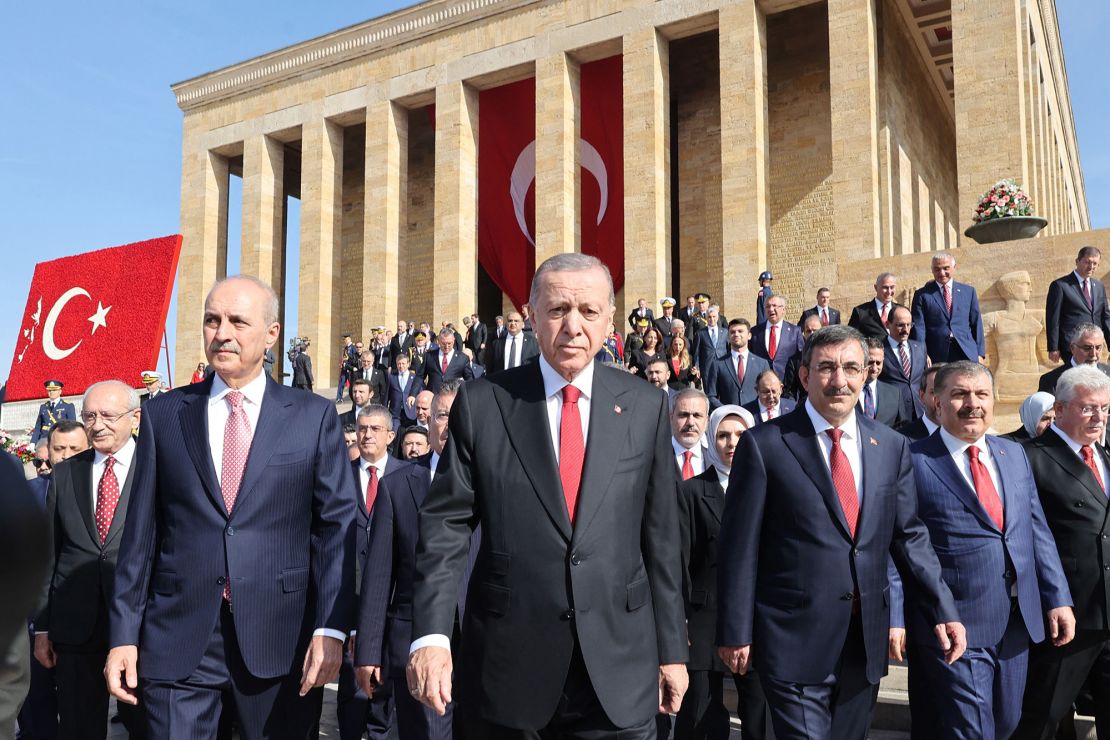
Somer suggested this as one reason the country looks so starkly different to 100 years ago. “After the First World War, (Turkish) society was much more split. It had just been defeated. Today, Turkey is much more prosperous, but this polarization stems from divisions created within,” he said. “I’m not sure whether the current government is really embraced by the majority of Turkish society.”
Zarakol hesitated in suggesting that Turkish society has undergone a collective shift. “It has always had its conservative parts,” she told CNN. “The only difference is with the state’s control of the media, it is now more visible.” Just as it was with “the secularists in the 1970s.”
Ozel suggests that part of that visibility stems from the country’s growing middle class. As “the conservative capitalists grew,” he told CNN, and migrated from the countryside to the cities Erdogan reflected those changing demographics.
A lasting legacy
Yet, Westernization no longer holds the same appeal today as it did last century, Ozel said, since back then “there was no other model.” The world is no longer as “centred around Europe” as it used to be and with such a shift, “peripheral powers” have become much more important.
What Ataturk may have been most proud of in today’s Turkey, however, is its growing influence on the world stage, analysts say. It is a legacy Erdogan is continuing to push, even if his brand of nationalism is very different.
The country is a crucial member of NATO and it has been instrumental in leading diplomatic efforts between Russia and Ukraine. Turkey’s strategic location means it controls access to the Black Sea and it continues to serve as a gateway between the East and West, to trade via Central Asia, and to conflicts in the Middle East.
In 1926, after an assassination plot against him was discovered, Ataturk told his new nation: “One day my mortal body will turn to dust, but the Turkish republic will stand forever.”

